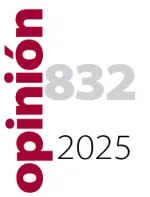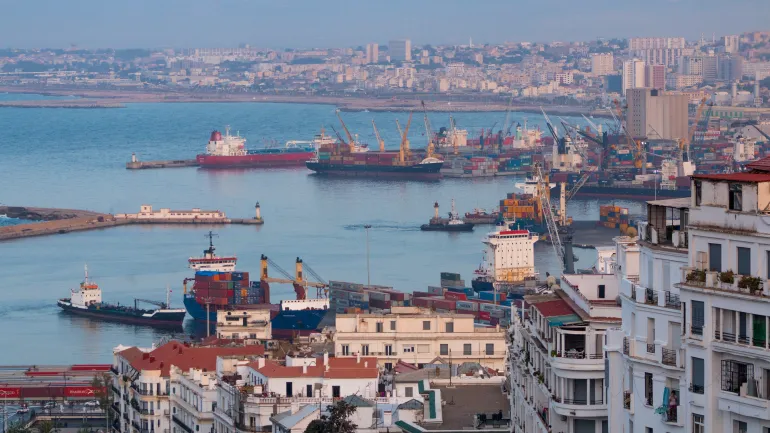Algeria’s outdated strategy: lessons from a fortress mentality


Algeria’s strategic doctrine has lost its shine. The country has the challenge of confronting the new geopolitical games in the region from a weaker position than it once had. In the midst of a diplomatic crisis with France, Algiers sees how Morocco has built a solid network of economic friends across Africa and security links with Israel, and how Russia has turned Libya, Algeria’s troubled eastern neighbour into the operational hub of its ever-growing African cluster.
The long crisis between France and Algeria took a turn for the worst following the arrest last November on his arrival in Algiers of the writer Boualem Sansal who enjoys both Algerian and French nationality. Mr Sansal is a respected novelist but his repeated attacks on Algeria in interviews in French media have not endeared him to many Algerians. The diplomatic crisis morphed into a storm with leading French politicians, notably on the right insulting Algeria daily in the French media for any number of reasons notably the country’s alleged refusal to take back Algerian nationals condemned by French courts. Memories of Algeria’s bitter war of independence (1954-1962) which destroyed the Fourth Republic resurfaced as some French defenders of Mr Sansal brought up that old chestnut – France had gifted civilisation to a barbaric country when it conquered after 1830. The French minister of the Interior, Bruno Retailleau was at the forefront of the attacks as he hoped to burnish his credentials to run as the presidential candidate for the conservative party Les Républicains in the 2027 French presidential election. Outdoing Marine Le Pen’s extreme right wing Rassemblement National and adopting a tough line on immigration is performing wonders for the minister’s standing in the polls but will not help find solutions to very complex issues. Such posturing breeds fear and resentment among millions of French citizens who have family links with Algeria. The deeper pathology is that the whole Franco-Algerian relationship is trapped in the two country’s respective electoral cycles. Both sides seem to rely on symbolic flareups to score points at home.
However, diplomatic relations between France and Algeria fleetingly improved after a telephone conversation between the two presidents, Emmanuel Macron and Abdelmadjid Tebboune, which took place, symbolically on 30 March, the day of Eid which celebrates the end of the month of Ramadan. Since then, the crisis has escalated again, and France has withdrawn its ambassador from Algiers. The Algerian ambassador had already left Paris following Mr Macron’s email to King Mohamed 6th on 30 July last year in which the French president acknowledged Morocco’s proposed autonomy plan for the Western Sahara as the only viable solution to a conflict over the international status of the former Spanish colony which has, since 1975, opposed the two Maghreb countries and the Polisario Front which has been fighting for independence of the territory.
Even if Macron has made many gestures to atone for French behaviour during colonial rule, he is the victim of his predecessors, notably François Mitterrand (1981-1995) who worked hard to rehabilitate the memory of the army officers who tried to assassinate president Charles de Gaulle (1959-1969) who granted independence to Algeria, while concealing his own brutal behaviour, as minister of the Interior and Justice towards native Algerians during their fight for independence. A story of contradictions brilliantly explained in the book “François Mitterrand, le dernier Empereur. De la Colonisation à la Franceafrique”.
Algerian leaders relish a good fight with France as it allows them to display their brittle nationalism and conceal, briefly, that they confiscated the freedom of their people after independence. Another, little noticed but important factor is at play. Since the turn of the century, Algerian diplomacy and role as a Third World leader has lost its shine. The very idea of the Third World, the forerunner of what goes today by the name of Global South, has vanished into the quick sands of history. Algeria’s competitor in North Africa, Morocco, has an economic and diplomatic swagger unthinkable two decades ago because it has built a solid network of economic friends across Africa and security links with Israel, the United Arab Emirates (UAE) and Saudi Arabia. It attracts a growing volume of foreign direct investment while Algeria appears stuck in a command economy system which discourages private investment and depends for more than 90% of its foreign income on exports of oil and gas -- a figure unchanged since the 1970s.
More recently, Algeria has felt betrayed by Russia, which provides two thirds of its weapons though it is not an ally. As Russia has turned Libya, Algeria’s troubled eastern neighbour into the operational hub of its ever growing African cluster, Algerian leaders who for decades denounced France’s “neo-colonial” interference in the Sahel countries find themselves faced today with mercenaries from the former Russian Wagner Group renamed the “Africa Corps”, seemingly after the Nazi field Marshall Erwin Rommel’s “Afrika Korps”. They were as stunned as European leaders when Russia quickly redeployed its Syrian military assets after the fall of the Assad regime to its five military bases in Libya to feed its operations in Mali, Chad, Niger and the Central African Republic, all former French colonies from which French troops have been humiliatingly ejected in recent years.
It is galling for Algeria to find itself in the company of Europeans who are facing the same strategic competition with Russia in their southern neighbourhood. In August last year, the warlord of eastern Libya, Marshall Khalifa Haftar sought to take over the south western oil fields of Ghadames, which lie close to the Algerian border. The Algerian military made clear to their Russian counterpart that if Haftar proceeded, which he did not, Algerian troops would cross into Libya to stop such a take-over. Algeria has never forgotten that the worst ever attack on one of the country’s major gas fields, Tigentourine was led by an Islamist terrorist group which crossed from Libya in February 2013. The Ghadames incident also reflected deeper anxieties, in Algiers, about the United Arab Emirates backed militarised order expanding westward from Cairo, all the more as the UAE works closely with Morocco. Algeria is less worried by Haftar being a Russian proxy as by his being part of the Emirati strategy of expanding in the Maghreb. Algeria is in the uncomfortable position of confronting the regional actions of the UAE, facilitated by its long-time arms partner, Russia. Algeria sees Moscow’s enabling that expansion as tactical even if the strategic architecture is Emirati.
Morocco for its part is acquiring greater influence in the Sahel countries by dint of growing economic links through its state phosphate and fertilise company OCP, its leading banks and its offer to train imams from these African countries at the Mohamed VI Institute in Rabat. That would ensure that the next generation of Sahel imams are taught a moderate version of Islam rather that the hard-line Wahabi version Saudi funding and preachers did much to encourage in the region the three decades after 1980. Morocco also offers scholarships to young people and growing sports links as it has built up its soft power across the continent. Algerian diplomacy meanwhile has used the country’s stint as non-permanent member of the United Nations Security Council in January 2024: it succeeded in unfreezing the assets of the Libyan Authority and strengthening the rights of non-permanent members of the UNSC.
Other international actors have entered the fray but whereas China and Turkey are playing a long game, notably in trade and investment, the likes of the UAE and Iran have other objectives - according to Tarek Megerisi, “fast cash for weapons, expand their geographical sway and weaponizing migration through the Sahel to Europe”. For Brussels, displacing Russia from Libya would have a knock-on effect and obstruct the former’s attempts to flip African states against Europe. It would help redefine the global competition for rare minerals and help undermine Russia’s entire strategy. Algerian leaders explain that the army’s huge stock of modern planes and ships (mostly Russian but also Italian) constitute a necessary deterrence against a “hostile” NATO which dismisses such arguments as cold war paranoia. The NATO backed intervention of western powers against Muammar al-Gaddafi, led by France in 2011, spelt disaster for Libya and across the Sahel. Algerian paranoia is not entirely unjustified but cannot offer a solid foundation on which to build the country’s strategic doctrine.
Europe for its part, is distracted in Ukraine, where it is attempting to push Russia back and in Gaza, where it is hardly an actor. The West more generally has failed to understand Russia’s policy retooling in Libya and the Sahel. Where North Africa is concerned, agreeing to Morocco’s plan for the future of the Western Sahara would make more sense if Europe put greater political capital into mending fences between Algeria and Morocco. France seems, for historical reasons and because of the disastrous strategic consequences of former French president Nicolas Sarkozy’s intervention in Libya, unable to formulate any new European thinking on North Africa. If Europe is to re-evaluate its policy on the Maghreb, it will have to be a collective effort where Italy, which has very strong economic and historic ties with Algeria, Germany and Spain play major roles. Algerian gas was a life saver for Italy after Russia’s invasion of Ukraine. For sixty years the country been a reliable energy supplier to Spain, Portugal, France, the UK, Belgium and Italy. Its gas reserves are considerable, and a number of projects to develop hydrogen with foreign partners are underway. But its leaders must come to a better appreciation that projecting an image of “Fortress Algeria” does nothing to foster a climate of mutual understanding.
Keywords: Algeria, France, security, Libya, Morocco, Russia, EU, North Africa, Sahel, UAE, southern neighbourhood, diplomacy
All the publications express the opinions of their individual authors and do not necessarily reflect the views of CIDOB or its donors